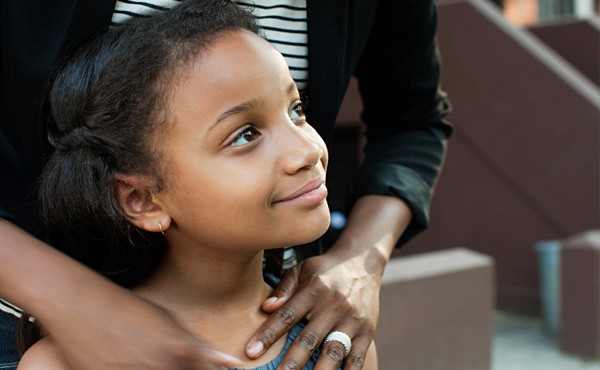Confidence doesn’t come naturally to everybody, especially children. The world can be a scary and intimidating place for little ones, but there are ways children can learn the self-confidence to tackle whatever the world throws their way.
Confidence, by definition, is knowing that you can rely on someone or something. Helping your child nourish and grow their own self-confidence can give them a solid foundation for handling situations or trying new things—even when you’re not there to help them. Fortunately, there are small, routine ways to help your child gain confidence and build healthy self-esteem.
How to Help Your Child Be More Confident
You play a big part in helping your child develop confidence. Experts recommend that caregivers consciously try to help their children feel valued for who they are. This helps them develop confidence with a safe foundation.
The biggest thing you can do every day to help your child gain confidence is to give them your undivided attention. Put away devices and electronics, make eye contact, and just talk with your child. When your child talks, really listen to what they have to say, and accept what they say without judgment.
Also, share your own emotions and feelings with your child. That way, they know it’s safe to do so with you.
Here are some more confidence-building exercises and strategies you can use with your child.
Let Them Play
Play helps children build resilience and self-confidence. By letting children explore ideas and try new things in a non-judgmental space, they learn to trust themselves and their ideas.
Model Confident Behavior for Your Child
You can help your child develop self-confidence simply by modeling confident behavior yourself. Don’t pretend to be perfect, but try new things with optimism to show your child healthy ways to be confident.
Praise Your Child Wisely
Praising your child wisely can help boost their confidence and self-esteem. It’s better to praise your child’s effort, rather than results. Instead of praising a good grade, for instance, praise the amount of work and studying they did to get it.
Experts also advise against hollow praise. If they feel like they didn’t do well at something, they know it. Instead, praise them for not giving up and reassure them they can try again.
Give Your Child a Job
Small jobs around the house give children a sense of contributing something important to the family. Consider your child’s interests and give them a job that can let them feel proud of what they do. A few examples include setting tables, doing dishes, putting away clean laundry, laying out their clothes for the next day, or helping with gardening.
Let Them Fail Safely
 It’s only natural to want to rescue your child—that’s your job, after all. But children need to experience disappointment and failure so they can learn to grow from it. Children learn success by overcoming obstacles, not by having obstacles removed, notes Kathy Hirsh-Pasek, PhD, professor of psychology at Temple University.
It’s only natural to want to rescue your child—that’s your job, after all. But children need to experience disappointment and failure so they can learn to grow from it. Children learn success by overcoming obstacles, not by having obstacles removed, notes Kathy Hirsh-Pasek, PhD, professor of psychology at Temple University.
Avoid Comparisons
Sometimes children may worry about their value because others perform better than they do. It’s common for a child to think of their value in terms of how they think others see them. Make sure your child knows they’re valued because of who they are, not how they perform in school, arts, sports, or anything else.
Let Your Child Know You Love Them, No Matter What
The unconditional love of their family is a solid foundation children can build upon to develop self-confidence and resilience. If your child is feeling down or thinks they’ve messed up, or if they’ve gotten into trouble, they might worry that your love has lessened. Be sure they know that you’ll always love them unconditionally.
7 Children’s Books About Self-Confidence
Children’s books can be helpful for opening discussions about social and emotional learning topics with your child. Seeing themselves reflected in story characters lets children know they’re not alone in the way they feel.
Here are seven of the best books to read with children about self-confidence.
1. You Can Do It, Stinky Face!, by Lisa McCourt, is a colorful board book about little Stinky Face, who doubts himself. His mom knows how to encourage him. Stinky Face learns to try new things and that it’s ok to be scared sometimes.
2. In Amazing Grace, by Mary Hoffman, Grace believes she can do anything—even try out for the role of Peter Pan in a school play. Despite being told girls can’t do that—especially that black girls like her—Grace perseveres. Her grandmother teaches her that with confidence and determination, Grace can do anything she sets her mind to do.
3. The main character of Stand Tall, Molly Lou Lemon, by Patty Lovell, is small and clumsy, but her grandmother has always taught her to be proud. Things get rough when a bully picks on Molly Lou Lemon the first day of school.
4. Calvin is a little bird who would rather be at the library than learning to fly. In Calvin Can’t Fly: The Story of a Bookworm Birdie, by Jennifer Berne, Calvin gets called names by other birds, but in the end his love of learning saves the flock. He teaches his fellow birds that everyone has strengths that make them special.
5. In A Bad Case of Stripes, by David Shannon, a little girl is worried about everyone’s opinion of her. She becomes whatever anyone calls her—even striped.
6. Kevin Henkes’ Chrysanthemum is about a young mouse named Chrysanthemum. Everything starts great, until she begins school and people tease her because of her name. Chrysanthemum must find her chance to blossom.
7. For children 8 and above, Smile, by Raina Telgemeier, is a graphic novel about young Raina, who has to deal with orthodontia, headgear, and dental surgery, along with all the other turmoil and emotions girls her age face. Raina learns how to be confident, even in the face of sixth-grade challenges.

